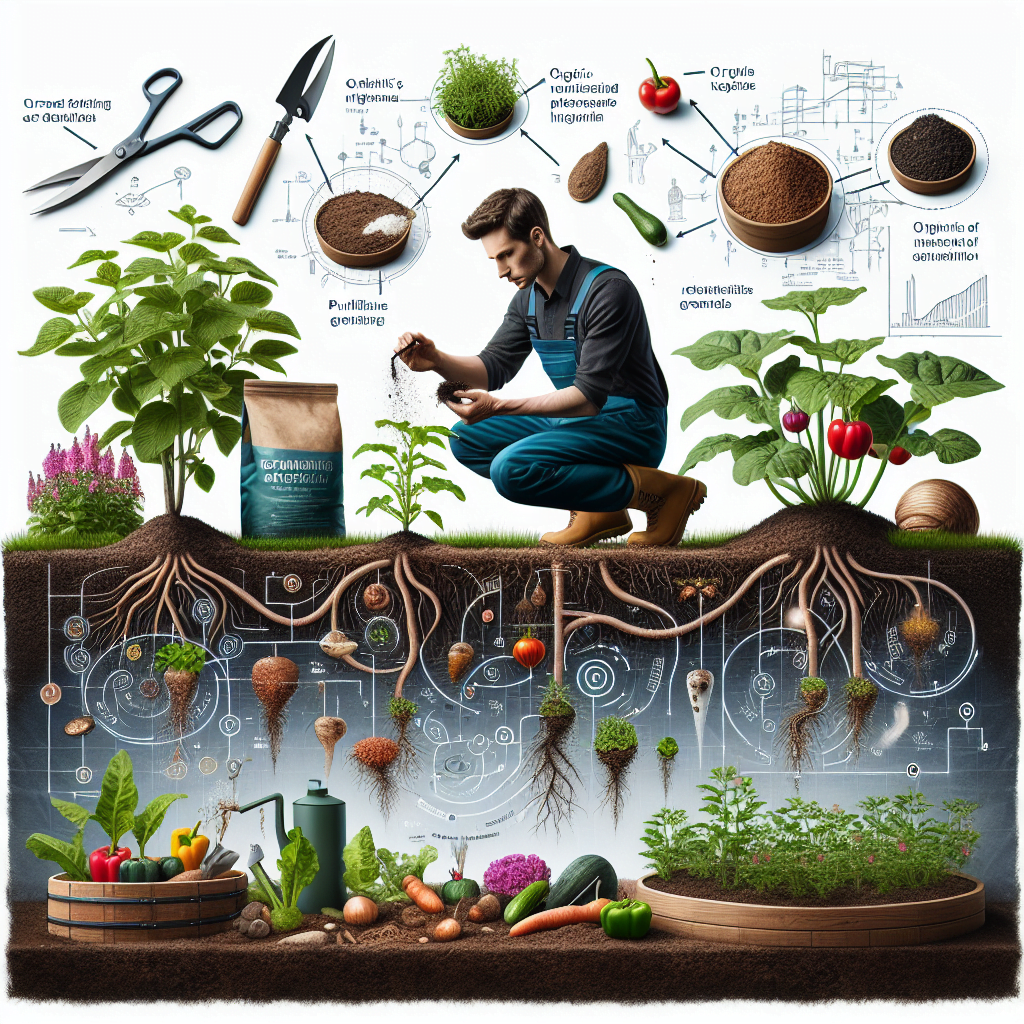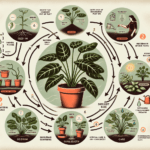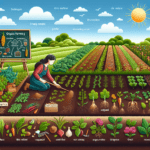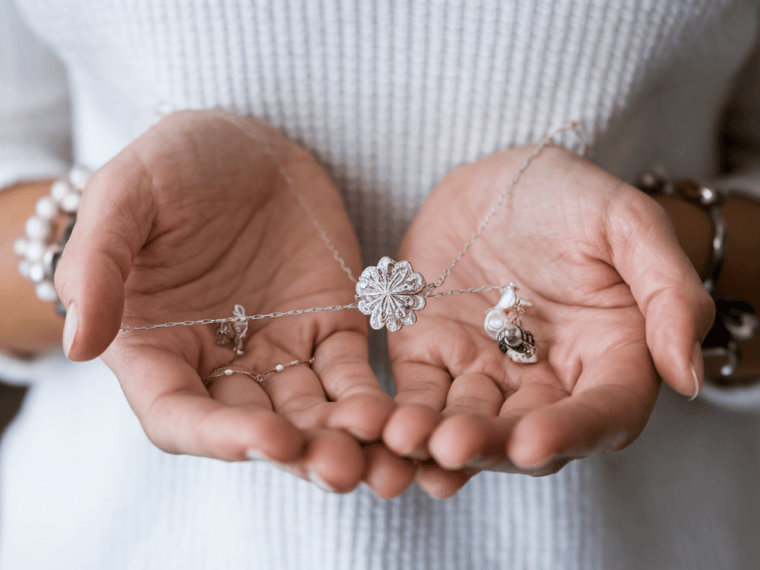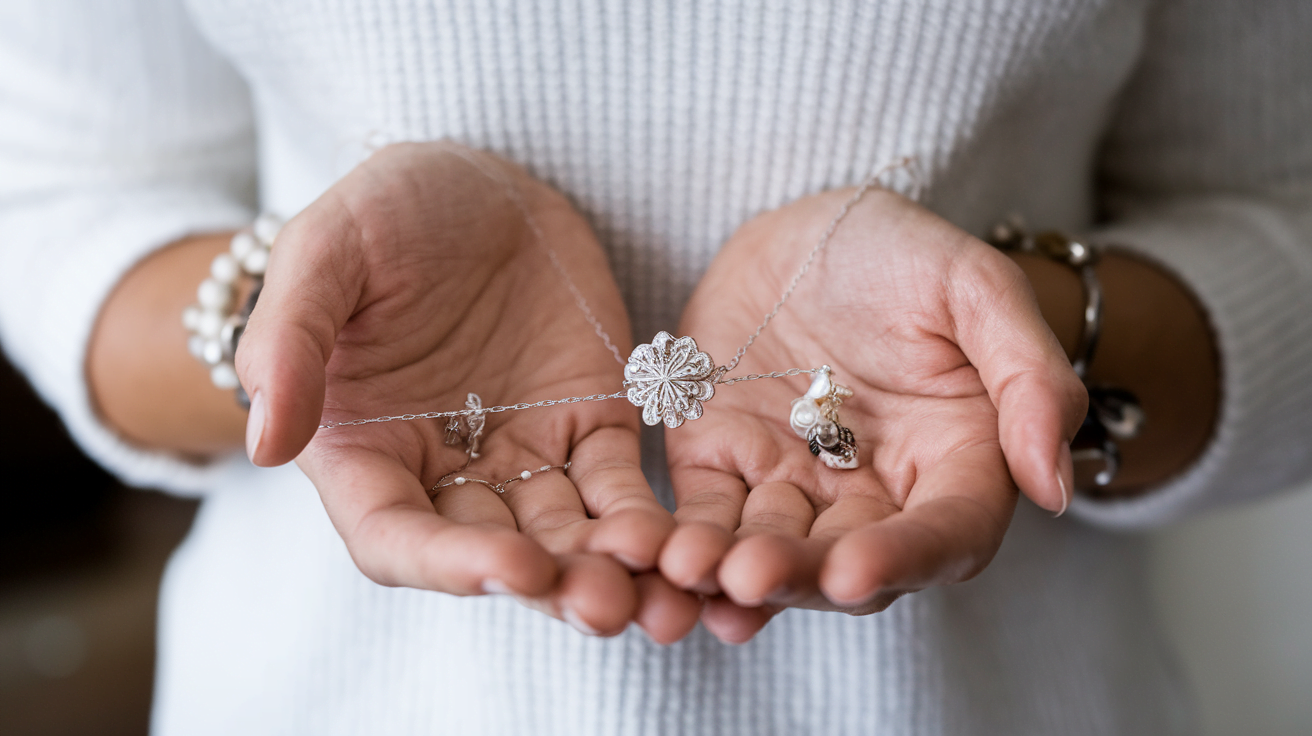Organic gardening grows plants in a way that’s friendly to the environment, using only natural practices instead of man-made chemicals or pesticides. It focuses on keeping the soil and the ecosystem healthy, supporting a variety of life, and lowering the negative effects gardening can have on the environment. Using natural methods is key for the wellbeing of the plants and our surroundings in the long run.
The role of soil in plant growth
Soil is really important for plant growth because it provides nutrients, water, and a place for roots to grow. The type and makeup of the soil can greatly influence how well plants do.
Building and maintaining healthy soil
To keep soil healthy, gardeners use techniques like rotating crops, planting cover crops, and not disturbing the soil too much. These practices help to better soil quality, make nutrients more available, and encourage good microbes to live in the soil.
Composting and organic fertilizers
Making compost and using natural fertilizers are great ways to put essential nutrients back into the soil, which improves its health. Organic waste like kitchen scraps, yard debris, and animal poop can be turned into compost that makes soil even richer.
For a great harvest in organic gardens, you need to plan and choose the right plants. Pick ones that are a good fit for your local conditions and can handle pests and diseases naturally. Rotating crops and planting different things at various times helps keep the soil fertile and avoid pest problems. Planting certain plants together, known as companion planting, can also improve soil health, keep pests away, and attract helpful bugs, which can lead to more produce.
Paying attention to pests and diseases is vital for an organic garden. Preventative steps can help stop big pest issues. This can mean rotating your crops, companion planting, and keeping a healthy soil full of life. For common plant problems like mildew or rust, there are natural remedies such as neem oil or copper sprays, safe for both the environment and beneficial insects. Moreover, balanced garden ecosystems come from integrated pest management which includes using predator bugs and checking pest levels to decide what action to take.
Raised Bed Gardening
Raised bed gardening lifts the garden beds above ground which leads to better drainage, top-notch soil, and less weeding. By adding things like compost and mulch, raised beds allow plants to thrive without synthetic stuff seeming necessary.
Greenhouse and Season Extension Methods
Using greenhouses or other methods can help organic gardeners stretch out the growing season and keep their plants safe from bad weather. These setups allow control over the growing conditions while still protecting against pests and diseases. And by using clever heating and cooling methods like capturing sunlight or ventilating properly, gardeners can keep their green thumbs environmentally responsible.
Watering and Irrigation Strategies for Plant Growth
Good watering techniques are key for a thriving organic garden. Saving water through systems like drip irrigation or collecting rainwater and using mulch keeps moisture in the soil where it belongs. Efficient water usage helps plants grow strong with a smaller environmental footprint.
After all the hard work in your garden, harvesting and saving your crops are essential steps to make your efforts last longer. Different plants need to be picked in certain ways to get the best taste and quality. Handling them carefully after picking and storing them right is super important for keeping them fresh. You can keep enjoying your fruits and veggies all year round by preserving them through canning, freezing, or other methods.
Proper Harvesting Techniques for Different Plants
Each type of plant has its own best time and way to be harvested. For example, pick leafy greens when they’re tender or wait until root veggies are fully grown. It’s smart to find out exactly when to harvest each plant for top flavor and texture.
Post-Harvest Handling and Storage
Taking care of your produce right after you pick it helps keep it in good shape. Get rid of any items that are damaged or overripe, and store them somewhere cool and dark to keep them from going bad too quickly. Knowing how to store each kind of fruit or veggie is crucial because they all have different needs.
Canning, Freezing, and Other Preservation Methods
You can prolong your produce’s shelf life with preservation techniques like canning or freezing. Canning means sealing food in jars tightly while freezing involves keeping them at very cold temperatures to prevent spoiling. There are also other ways to save your food like drying or fermenting for longer storage times.
If you’re looking to sell your organic bounty, you gotta have a game plan. Figure out who wants to buy your stuff, understand what they’re looking for, and determine the best way to get their attention. Creating strong relationships with customers and local shopping spots is critical for consistent sales. This involves being nice to people, providing service that wows them, and ensuring your products are top-notch. Getting certified as an organic producer adds trustworthiness to your goods and promises buyers they’re getting the real deal.
